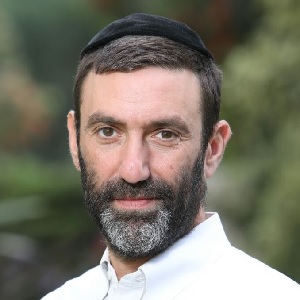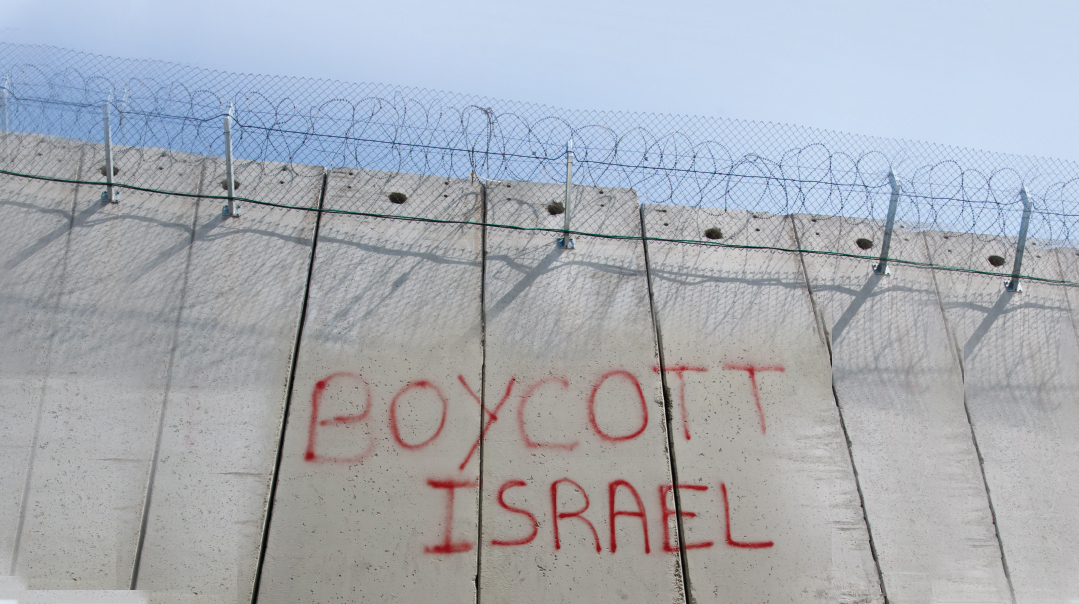We Are One

We’re getting bored of BDS, but the threat keeps growing

W
e have all heard the term “BDS” so much over the last two decades that the threat the movement poses might seem overstated, even clichéd.
Yeah, yeah, BDS. Pass the salt.
But the threat of BDS is real and should concern us all, even if the goals of the movement have shifted. What could once be billed as a pressure campaign to force Israel to negotiate with the Palestinians has now become a hate campaign that seeks to delegitimize Israel and tar the Jewish People. What once could be considered a strategy within the normal realm of political behavior is now outright racism and bigotry.
The threat is so real that the State of Israel gathered together leaders of the anti-BDS movement recently in Jerusalem for a conference, “We Are One,” where activists shared horror stories and strategized on best practices for defense. A Jewish leader from Latin America, for instance, described the situation in Chile, which he called “ground zero for BDS” on the continent, as a battle of a tiny minority facing a huge and active mass: a few thousand Jews arrayed against an immigrant population of 350,000 Palestinians. Shockingly, the leader of the BDS movement there is an expatriate American Jew from New Jersey.
Across the world in Spain, a Jewish activist detailed how Iran had infiltrated the political system there, sponsoring a party that is among the country’s largest. In his estimation, it’s not that Spaniards are anti-Semitic, but that they’re ignorant of the facts. With immigrant Muslims pressing their own agenda, and a native population that is losing its own identity as ties of religion and country fray, Jews are finding themselves in the middle, and feeling squeezed.
The head of the Jewish Agency, Isaac Herzog, told the audience that his organization has set up a 24-hour “emergency room” for monitoring anti-Semitism around the globe. If a Jew gets beat up on the streets of Malmo, in Sweden, the Jewish Agency knows about it within minutes. The son of the former president of Israel and the grandson of the chief rabbi of Israel called the fight against BDS “the most important battle of our era.”
Rabbi Abraham Cooper, the associate dean of the Simon Wiesenthal Center and a participant in one of the conference’s panel discussions, described BDS as a campaign of “death by a thousand cuts.” Even though Jewish students and pro-Israel groups have defeated campus divestment campaigns and called out hateful rhetoric disguised as “anti-Zionism,” Cooper described BDS activists as “indefatigable” in pressing their agenda. Though Orthodox Jews are largely shielded from BDS’s aggression — many of the activities take place on university campuses and on social media — that doesn’t mean that frum Jews shouldn’t be concerned.
“From our enemy’s point of view, if you are a Jew, you are going to be hated,” Rabbi Cooper said in an interview after the conference. “To them, we are all the same, we are a universal target. It doesn’t matter your level of mitzvot. This [kind of hate] has not been in America for a very long time. We’re [all] in the same boat.”
Edwin Black, a historian and the author of a number of books on anti-Semitism (IBM and the Holocaust; Nazi Nexus; The Farhud) said that there are commonalities between the present moment and the years leading up to Hitler’s reign. “I see the same signposts,” he said in an interview. “Where Jews are playing ping-pong, these guys are playing longball. Our enemies live in a future where they would like to see Israel destroyed and the Jewish People dismantled.”
By 2024, he believes, the United States of America will have a political party that is based at least in part on anti-Jewish hate. He identifies the radical left, anti-Jewish Muslims, and the far right (in that order) as the greatest threats to Jews around the globe.
Why is the radical left so dangerous? “Because it uses the veneer of human rights to target Israel. Everything done under Hitler was done by juridical decree.”
(Originally featured in Mishpacha, Issue 768)
Oops! We could not locate your form.













